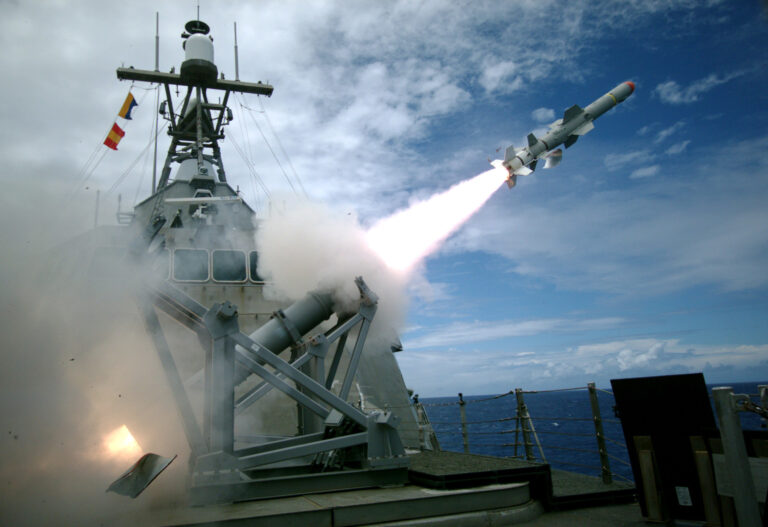China announced new sanctions against three major US defense contractors, including aerospace giant Boeing, for “arms sales to the Taiwan region.”
Boeing’s defense units, General Dynamics Land Systems and General Atomics Aeronautical Systems, have been added to China’s Ministry of Commerce’s list of “unreliable companies,” according to two statements from the ministry.
These companies are currently prohibited from trading or investing in China, and their executives are subject to entry bans. The companies join five other U.S. defense companies, including Lockheed Martin and Raytheon, that the Chinese government imposed sanctions on in 2023.
The sanctions are largely symbolic, as U.S. law prohibits the sale of military technology to countries deemed hostile, but they come amid heightened tensions between the superpowers over Taiwan. Taiwan is a democratic island claimed by Beijing, and Chinese President Xi Jinping has called it a “red line that cannot be crossed.”

Lieutenant Bryce Hadley/U.S. Navy
Taiwanese Foreign Ministry spokesman Jeff Liu said this is not the first time China has imposed sanctions on a U.S. company over arms sales to Taipei.
“The Ministry of Foreign Affairs deeply regrets this. Taiwan is committed to maintaining peace and stability in the Taiwan Strait,” he said. newsweek.
“In the face of China’s military threats and intimidation, our government has a responsibility to safeguard the security of the Taiwanese people,” Liu added.
Boeing and China’s Ministry of Commerce did not respond to written requests for comment.
He said his administration will continue to urge the U.S. government to fulfill its commitments under the Taiwan Relations Act and continuing bilateral agreements.
Although the United States, like many countries, no longer officially recognizes Taiwan, it maintains strong de facto diplomatic relations with the island and is obligated to contribute to its self-defense under the Taiwan Relations Act. .
China has vowed to one day annex the island, using force if necessary, but Beijing’s Communist Party government has never ruled the island.
In recent years, in response to China’s increased military activity in the sea and airspace surrounding Taiwan, Taiwan has increased defense spending and expanded domestic weapons production.
Taiwan’s National Defense Force is awaiting fulfillment of a number of U.S. orders, including a $500 million contract from Boeing for 100 land-based Harpoon missile systems to strengthen its coastal defenses.
The latest sanctions by the Chinese government were announced on the same day that new President Lai Ching-de, who China labeled a “troublemaker,” took office in Taiwan. In his inaugural address, Lai called on China to “face up to the reality of the Republic of China’s existence.”
The Republic of China is the official name for Taiwan, and was used by the Kuomintang government that defected to Taiwan after being defeated by communist forces in the 1949 civil war.
Lai said he hoped neighboring Taiwan would “choose dialogue over confrontation.” He proposed early and sincere steps to improve relations across the Taiwan Strait, including resuming mutual tourism and allowing Chinese students to study at Taiwanese universities.
rare knowledge
Newsweek is committed to challenging conventional wisdom, finding common ground and finding connections.
Newsweek is committed to challenging conventional wisdom, finding common ground and finding connections.

